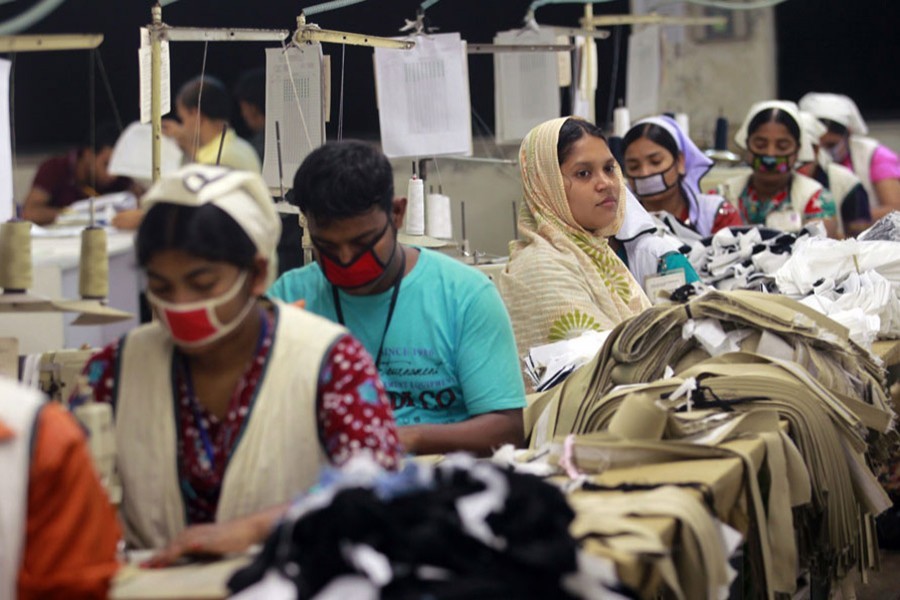
Published :
Updated :

Both Bangladeshi producers of apparels and foreign buyers should be embarrassed by the latest Oxfam report's finding that the Bangladesh's apparel industry workers are the lowest paid in the world. But neither will be. That is what the history of the industry leads one to believe.
The Oxfam's report titled 'Reward Work, Not Wealth', published on January 21 last, said, " On average it takes just over four days for a CEO from the top five companies in the garment sector to earn what an ordinary Bangladeshi woman garment worker earns in her whole lifetime". The minimum wage for a garment worker in Bangladesh is Tk 5,300 per month. The amount is too meagre to make a living and all are aware of this fact.
The Oxfam report reviewed the minimum wage against the living wage of seven countries that are major producers of apparels in the world--- China, Bangladesh, India, Sri Lanka, Malaysia, Cambodia and Vietnam. It found that minimum wage against living wage in Bangladesh is the lowest.
However, the government has recently formed a new board to recommend a new wage structure for the RMG industry under an unprecedented development.
RMG owners, who are organised under the banner of a strong trade body--- the Bangladesh Readymade Garments Manufacturers and Exporters Association (BGMEA) ---have always been opposed to any hike in wages of their workers. Surprisingly, this time they have requested the government to form a new wage board for workers. The reason behind doing so remains a mystery. Some say the owners have taken the move fearing trouble over wage-hike.
Meanwhile, a number of organisations representing the apparel workers have demanded a minimum wage of Tk16,000 which they feel would help a worker make a living. The proposed wage represents a threefold hike of the present minimum wage. It is very unlikely the BGMEA would agree to such a hike notwithstanding the fact that the proposed minimum wage is far less than what a fourth-class government employee receives these days as his/her salary.
The RMG owners have always expressed their inability to pay enough to their workers on the ground that their earnings do not permit them to do so. They cite the buyers' unwillingness to pay the right prices for both woven and knit garments in a very competitive market as the primary reason for it. However, sceptics are not ready to buy this argument as they refer to the affluence and lifestyle of a section of RMG owners.
Foreign buyers on their part also have been doing a huge disservice to the cause of the Bangladeshi RMG workers. They seem very concerned when the workers die in accidents taking place in the workplaces and try to do what is necessary to ensure workers' safety and security. But the buyers are, apparently, not ready to support the workers in their bid to make a decent living. They could well tag this particular issue with their deals on apparel procurement from Bangladesh RMG units along with some hike in prices of the items they buy.
There is no denying that the RMG industry in Bangladesh has empowered millions of women both financially and socially. But it is hard to say the workers are getting what they deserve in exchange for the labour they are putting in an industry that is considered the mainstay of the country's economy. There should be a sympathetic review of their wages in the context of soaring living cost.
Zahidmar10@gmail.com


 For all latest news, follow The Financial Express Google News channel.
For all latest news, follow The Financial Express Google News channel.